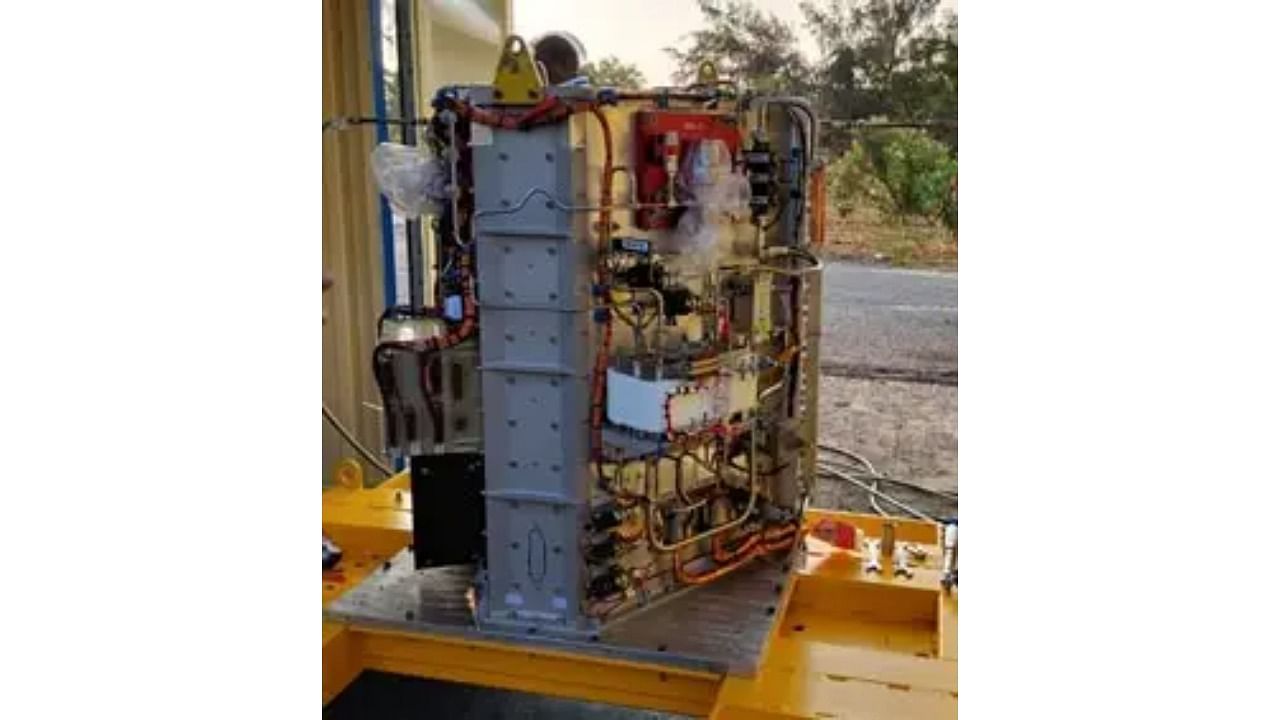
The fuel cell payload in POEM-3
Credit: Isro
Bengaluru: The Indian Space Research Organisation (Isro) has successfully tested a 100 W class polymer electrolyte membrane Fuel Cell based Power System (FCPS) in POEM-3, the orbital platform it launched onboard the PSLV C-58.
An experiment tested the power system’s performance in space and the resultant data will be critical to the design of systems for future missions.
Isro said on Friday that during the short duration test onboard POEM, 180 W power was generated from hydrogen and oxygen stored onboard in high-pressure vessels. “It provided a wealth of data on the performance of various static and dynamic systems that formed part of the power system and the physics at play,” Isro said.
Hydrogen fuel cells produce electricity directly from hydrogen and oxygen, along with pure water and heat. They are electric generators that, like batteries, work on electrochemical principles, unlike conventional generators that work on combustion reactions.
Emission-free alternative
Their ability to produce electricity directly from fuels, without an intermediate step, and water as the only by-product, and their emission-free utilities pitch these fuel cells as ideal for human spaceflight missions where electricity, water, and heat are critical. Isro noted that fuel cells are ideal for space stations since they provide both power and pure water.
With a range and fuel recharge time on par with conventional vehicle engines, fuel cells can also emerge as an emission-free alternative in transportation, the space agency said.
PSLV C-58, on January 1, launched XPoSAT (X-ray Polarimeter Satellite), Isro’s first dedicated scientific satellite to carry out research in space-based polarisation measurements of X-ray emission from celestial sources. POEM-3 (PSLV Orbital Experimental Module-3) is the launch vehicle’s fourth stage that can, as a stabilised orbital platform, execute experiments with the 10 mission payloads.